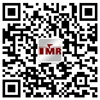题 目:Solar Fuels: Nanomaterial Engineering and Fundamental Studies
报告人:Dr. Junwang Tang
Lecturer in Energy (tenure)
Department of Chemical Engineering
University College London (UCL)
Torrington Place London WC1E 7JE
时 间:4月5日(周二) 15:00-17:00
地 点:工艺楼408室
欢迎参加!
Solar Fuels: Nanomaterial Engineering and Fundamental Studies
90% of energy sources are currently from fossil fuels. It is predicted that the fossil fuel reserve can not meet the rapidly increasing energy demand of humankind and more importantly, burning fossil fuels is bringing about large amount of greenhouse gas CO2 which causes a prospect of catastrophic climate change. A renewable, affordable and clean at least carbon neutral energy is required. Taking into account most abundant renewable energy – solar energy and its intermittent in the planet, converting and storing solar energy is of greatly important and crucial in science and industry. Solar hydrogen production by means of photocatalytic water splitting over inorganic semiconductor is one of the most attractive approaches to realize the above strategy. The key barrier is quite low efficiency in the technology after demonstration of feasibility of the approach by Fujishima et al. three decades ago.
Nanocrystalline material is regarded as an efficient way to improve charge carriers separation, thus enhancing light conversion efficiency. Some nanocrystalline powder and nanostructured films synthesised in my group will be presented in the talk.
In parallel increasing generation and utilization of the separated charge carriers is of particular interest apart from developing new materials absorbing more visible light because it is reported that ~90% of charge carriers is recombined within 10 ns in TiO2 colloids, which would make it very difficult to achieve high efficiency as the reactive steps would have to occur on a timescale faster than this for solar fuel generation. Measuring charge recombination processes and in particular reactions between reactants and charge carriers over candidate materials are therefore important steps in evaluating the materials and understanding mechanisms. We systematically studied the mechanism and the dynamics of photoholes and photoelectrons and kinetics between charge carriers and water will be emphasized in this talk.
Biography
Dr Tang is a Lecturer in Energy in Chemical Engineering at University College London (UCL) and an Honorary Lecturer in Chemistry at Imperial College.
Dr Tang received his PhD in Physical Chemistry at DICP in 2001, and has been awarded a highly competitive Outstanding President’s Prize of Chinese Academy of Sciences. Between 2002-2005, he had been a researcher and Japan Society for the Promotion of Science (JSPS) Fellow in the National Institute for Materials Science (NIMS), Japan. In 2005, he moved to the Department of Chemistry, Imperial College, as a senior research associate to concentrate on fundamental research in photocatalysis, aiming to explore the key barriers limiting solar energy conversion efficiency. At the beginning of 2009, Dr Tang joined the department of Chemical Engineering, UCL as a Lecturer in Energy.
Dr Tang has research interests in nanocrytalline materials and nanostructured films fabrication and their application in renewable energy, environmental purification and biomedicine. Currently, he is focusing on solar energy conversion to fuels including solar H2 production from water photolysis and CO2 photoconversion to methanol, drug delivery as well as organic contaminants photo-mineralisation. In parallel, such studies are carried out with device development and mechanistic research to address renewable and clean energy generation and eliminate GHG emission. His group works closely with several academic and industrial partners worldwide. Dr Tang has also been recognized for his research on solar fuel with a Young Scientist Award by the International Association of Catalysis Societies at the quadrennial 14th International Congress on Catalysis, 2008.
Totally more than 60 papers have been published, one of which has been cited 185 times over last few years and 8 patents filed (one has been awarded in English, German, Japanese and Chinese) besides many invited presentations and one chapter contribution to a popular CRC handbook. |



